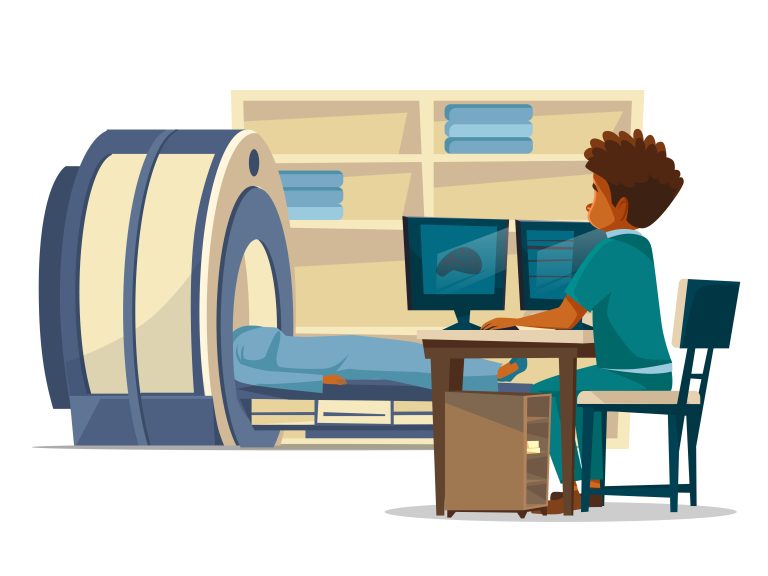

Contact Us Now
Upload Prescription
Not sure which tests to take? Share your prescription with us and our team will call you to book tests for you.

This blog lets us understand the four major things one should know before getting to the nearest ct scan center. First thing first, let us get an overview of the CT scan.
A CT scan combines a series of X-ray images taken from different angles around your body with computer processing to produce cross-sectional images (slices) of your bones, blood vessels, and soft tissues. However, CT scan images contain more information than standard X-rays.
A CT scan can be used for a variety of purposes, but it’s beneficial for quickly examining people who may have internal injuries as a result of car accidents or other types of trauma. A CT scan can visualize almost every part of the body and is used to diagnose disease or injury and plan medical, surgical, or radiation treatment.
It is always best to search and visit the CT scan center near me, for your convenience. If it’s your first CT scan, you might be nervous about what to expect, but don’t worry because CT scans are painless and have become commonplace due to technological advancements. However, knowledge is power, and by doing your homework on the scan and diagnostic center ahead of time and asking questions, you can ensure a pleasant experience and a productive scan that leads to an accurate diagnosis.
Following are the four things you should know, Before getting a to the nearest ct scan center:
CT scanning is particularly useful for examining bones.
If you have a back problem, a broken bone, or bone disease, your doctor may order a CT scan. A CT scan is also faster than some other imaging tests, making it a popular choice in an emergency or when your doctor requires information quickly. This is the case if you’ve been in a car accident or are experiencing sudden stomach or chest pain.
Your doctor may advise you to have a CT scan to:
Because CT scans use powerful X-rays, many people are concerned about radiation exposure. The radiation dose from a single CT scan, on the other hand, is negligible, and newer machines reduce radiation doses even further, while trained radiologists adjust the dose for each patient based on their specific case and age. Furthermore, CT scans are only recommended when the benefits outweigh the risks, such as when diagnosing and treating life-threatening disorders.
The contrast materials can cause allergic reactions in some people, although the majority of the time, the response is mild; itchy skin or a rash are possible side effects. In a small number of cases, the dye can cause a life-threatening reaction and as a result, your health care provider may want to keep an eye on you after your CT scan for a while. Tell your doctor if you have any medication, seafood, or iodine allergies.
If you have diabetes and are taking the drug metformin, let your doctor know. They’ll tell you if you need to stop taking your medication before or after the procedure.
Visit the nearest CT Scan center like us, Simira Diagnostics Horizon diagnostics for CT scans and procedures that can be used to help prevent, detect, treat, or manage diseases. We have the best staff that will look out for you during your procedures and assist you in the best possible ways.
Copyright © Simira Healthcare Private Limited 2024. All Rights Reserved
This will close in 0 seconds
This will close in 0 seconds
Leave a Reply